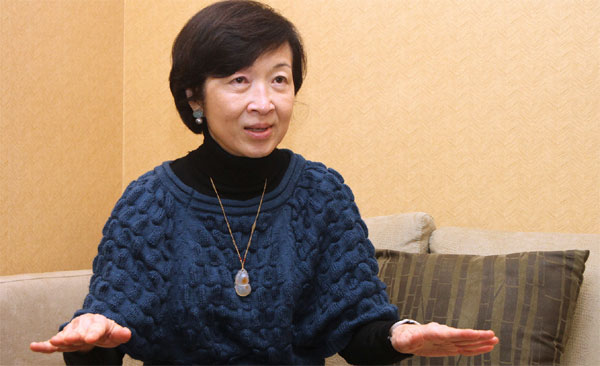NPC deputy: Resolution provides the direction
Updated: 2014-09-04 05:58
By Joseph Li(HK Edition)
|
|||||||||
Fanny Law urged the opposition to be realistic and work to bring about universal suffrage in Hong Kong, Joseph Li writes
Fanny Law Fan Chiu-fun, a deputy to the National People's Congress (NPC) and an Executive Council member, said that since the resolution of the National People's Congress Standing Committee (NPCSC) has provided direction in several key areas, it would help focus discussions during the second stage of the public consultation.
Speaking to China Daily in an exclusive interview, Law said she earnestly hoped the Legislative Council would endorse the electoral package.
|
Fanny Law Fan Chiu-fun, a deputy to the National People's Congress, said the central government had genuine concerns that foreign forces in Hong Kong might intervene in the Chief Executive election. Parker Zheng / China Daily |
Although opposition lawmakers have said they would veto it, she urged them, as elected representatives of the people, to listen to people's opinions and think twice about the advantage of moving forward and the disadvantage of standing still.
She praised Li Fei, deputy secretary-general of the NPCSC, for making very good presentations with sound reasoning in Hong Kong and earlier in Shenzhen.
The central government has been frank in explaining the rationale behind the framework, she said.
Countering queries about the relationship between national security and universal suffrage in Hong Kong, Law said those who had doubts did not know as much as the central government.
She explained that the central government had genuine concerns that foreign forces in Hong Kong might intervene in the Chief Executive (CE) election.
She said this explained why a person who did not love the country or Hong Kong and who opposed the central government must not be elected.
She said a string of recent incidents, such as the threat of the "Occupy Central" campaign, protesters waving British Hong Kong flags and a break-in at the People's Liberation Army barracks, had sounded alarm bells about foreign activities in Hong Kong.
Law said she fully understood the emotional setbacks for the opposition camp after the NPCSC decision. This is because many of them have pursued universal suffrage for many years.
She said: "Given the decision has been made and is irreversible, we should look forward and stop arguing. Their ideal universal suffrage model is a contest of different opinions between the "pan-democratic" and pro-establishment camps similar to a Democrat versus a Republican in foreign countries, where the political system of party alternation is practiced.
"Their understanding of universal suffrage is not entirely correct and lacks sufficient grounds. In Hong Kong, we practice 'One Country, Two Systems' and there is no such thing as party alternation."
Law said most Hong Kong citizens are rationalists who would love to see the implementation of universal suffrage.
She believed, with the implementation of universal suffrage, there will be big changes to the entire political landscape. Only then will the government become more open to different political views and more understanding of public opinion.
"The past and present CEs have found it hard to make policies work because people say 'you are not elected by us'. Only a CE returned by universal suffrage will have a strong enough mandate to take Hong Kong forward and rationalize existing problems. And only when the universal suffrage dispute is resolved can the government focus on economy and livelihood issues," she noted.
Contact the writers at joseph@chinadailyhk.com
(HK Edition 09/04/2014 page3)
